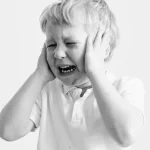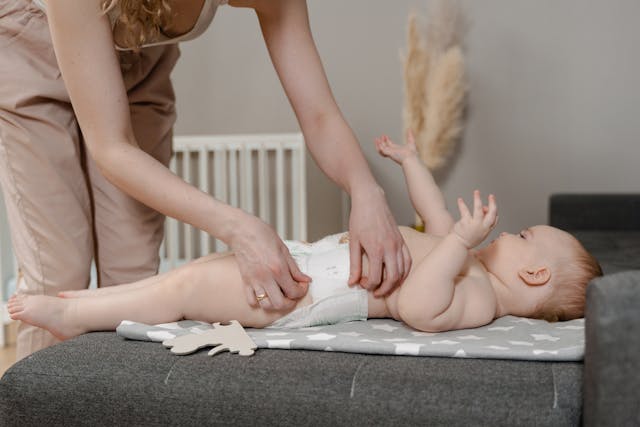Critical Parent Trap Escape – Your Path to Healing and Thriving
As the name implies, critical parenting includes a harsh style, where parents are always pointing out the mistakes of children. Childhood experiences shape the future life of an individual. Children learn invaluable lessons from parents, and the parenting style greatly influences their personality. A positive parenting approach fosters the growth of emotionally healthy and stable children while a negative parenting style brings up emotionally weak and low self-esteem children.
Critical parenting is a negative parenting style that includes blaming statements, criticism, and an authoritarian parenting style. It has a very negative side effect on the children in their adult lives, as they become judgmental of themselves and the people around them. Such parenting styles from a toxic environment in the house, negatively affect the relationships. Constant family conflicts become a norm and family bonds are weakened.
What is a critical parent?
When a parent belittles the child and is never satisfied with their achievements, and values an obedient child over an emotionally nurtured child will fall under the category of a critical parent.
Parents who observe critical parenting styles are generally more obsessed with themselves, their values, and their aims of achieving success and making their child follow their path. They are judgmental parents who criticize their children’s choices all the time. Such parents want to control the choices of their children and demand a lot from them while in return becoming non-responsive to their emotional needs.
Signs of a Critical Parent

Knowing the signs of critical parenting is important for parents as well as children. Parents can transform their style if they think they have adopted a critical parenting style while children knowing the signs can cope with their parents and never adopt this style when they become one.
Let’s delve into the signs of a critical parent:
Always have a judgmental attitude
Critical Parents have a judgmental view of everything and everyone around them, even their children. They are quick to criticize and find faults in others.
Authoritarian Parenting Style is a strong sign of a critical parent
While communicating, critical parents have an authoritarian or commanding tone. They give orders, have demands, and impose rules. They prefer having an obedient child rather than an emotionally stable and strong child.
Rigid Expectations
They have very high expectations from their children that are beyond the child’s capability. Those who don’t fulfill it will never be in their good books and will always be judged and criticized for the rest of their lives.
Lack of Empathy
Critical Parents lack empathy and are not always there to give an ear to their children’s problems. They don’t fulfill their children’s emotional needs, and act unsympathetic.
Controlling Attitude
Critical parenting involves controlling. Overly critical parents control every move of their children and fear their independence. Instead of helping the child learn, they tend to perform all the tasks by themselves.
Focus on Failures
Overly critical parents never praise their children for achievement and acknowledge it. They always point out their failures and are never satisfied with what their children bring to the table.
Make Comparisons
In Critical parenting, comparisons are common. A critical mother or father might compare their children with each other, their friends or cousins, belittling them on every little thing.
Conditional Love
A critical mother or father offers conditional love. They offer love to their children only if they follow their steps. They only offer them love when the children show obedience and manners and follow their rules.
Now that we know the signs of critical parents, let’s dive into the impact it has on children, not just in childhood but how it follows them to adulthood.
Effects on Children of Critical Parenting
Being raised by a critical mother or father will have a great impact on shaping your adult personality. Critical parenting affects your self-esteem, interpersonal relationships, and your willingness to take on challenges. It influences the way you think, feel, and respond to situations and people. Generally, the effects are negative if your parents were critical in your childhood.
The influence of having overly critical parents can slow down your emotional healing process and you might find them challenging to overcome. The wounds caused by critical parenting can leave an ever-lasting impact on your self-perception, and ability to navigate relationships, creating hurdles that require attention to overcome.
Let’s learn the impact you might notice in yourself if raised by critical parents.
You have low self-esteem
Constant criticism and belittling can make you question your self-worth. If you are raised by overly critical parents, you may develop low self-esteem, doubting your abilities, and feeling unworthy and unloved.
Fear of Failures as a result of a critical parent
Since, critical parents often have unrealistic expectations from their children, and are unable to accept failures. When you grow up in such an environment, you will always find yourself struggling for success and will always fear failure feeling reluctant to get on risky adventures.
Anxiety and Depression
Living under a critical parenting style can lead to anxiety and depression in children. You might feel unloved, and unwanted and suffer from mood swings.
You become Judgmental
Living with critical parents who are always judgmental of you and others makes you critical about yourself and others. This might be as a self-defense against your low self-esteem.
Difficulty Expressing Emotions
A critical mother or father’s negative behavior towards their child results in suppressing the child’s ability to express emotions. Raised by critical parents, you might fear judgment and rejection when expressing your emotions to the other person.
Trouble facing constructive criticism
If you are raised in a critical parenting style, you might find it very difficult to interpret constructive criticism and might interpret it as a personal attack responding defensively.
Coping Mechanisms for Dealing with a Critical Parent

Dealing with a critical parent is challenging even in adulthood. But with several coping mechanisms, you can learn to deal with them, improving your own mental health and well-being.
Let’s have a look:
Establish Boundaries
Form clear boundaries and communicate them well with your parents. Calmly assert your limitations and needs and be firm on them.
Know your Self-Worth
Don’t let the criticism affect you. Know your self-worth, and be aware of your emotional reactions when dealing with your critical mother or father.
Set Realistic Expectations
You should know perfection is unattainable, everyone makes mistakes and it’s okay to make mistakes. When you will learn to implement this in life, not only criticism won’t have an impact on you, but you will also see improvement in your way of thinking and setting limitations.
Focus on Personal Growth
Exert your energy in improving yourself. Set goals that are related to you and your passion, and celebrate your achievements. The sense of accomplishment will help you build your self-worth.
Establishing Healthy Communication with a Critical Parent
Establishing healthy communication with your parents is essential as it is one of the most important relationships for you. It might be challenging at first, but patience, understanding, and effective strategies can help you fill the gap and build healthy communication.
Here are a few tips to build a better relationship with your parents:
- Communicate your needs in a calm tone. Never misbehave with parents.
- Use the ‘I’ statement to tell them how you feel.
- When you tell them about their behavior give an example of when they behaved in such a way. This will help your parents change their behavior.
- Talk about areas of shared values to build a healthy bond.
- Communicate your boundaries. Tell them how you want them to treat you and how certain things are just unacceptable.
- Show empathy towards your parents and learn the root cause of them being critical all the time.
- Set boundaries but never stop caring for them.
Healing and Moving Forward
Healing and moving forward is important for your improved mental health and overall well-being. But it needs a lot of effort from your side. Healing from such relationships and childhood traumas includes self-reflection, self-care, and seeking professional support if needed.
Replace your self-critical thoughts with more positive thinking. Surround yourself with people that uplift you and celebrate your accomplishments.
Change your routine, incorporate activities that keep you busy, and help you in relieving stress. Learn to forgive not necessarily for the benefit of others but for your healing. Understand that healing is a gradual process and cannot happen overnight. It’s completely normal to seek help and take time to move on with a better positive lifestyle.
Conclusion
Healing from a childhood trauma ain’t easy. Criticism, belittling, and all the toxicity that comes with critical painting are no more than a trauma for a child. It not only keeps the child in stress but causes hindrance in his life. It shapes his future personality and life as he might be unable to compete like the healthy nurtured kids.
Now that you are aware of what critical parenting is, and its signs and effects, learn and change the way you treat your kids. If you are an adult who faced critical parents, learn to cope with them, heal and move forward, and never adopt the habits that you found were toxic for the home environment, giving your children a better healthier life.









